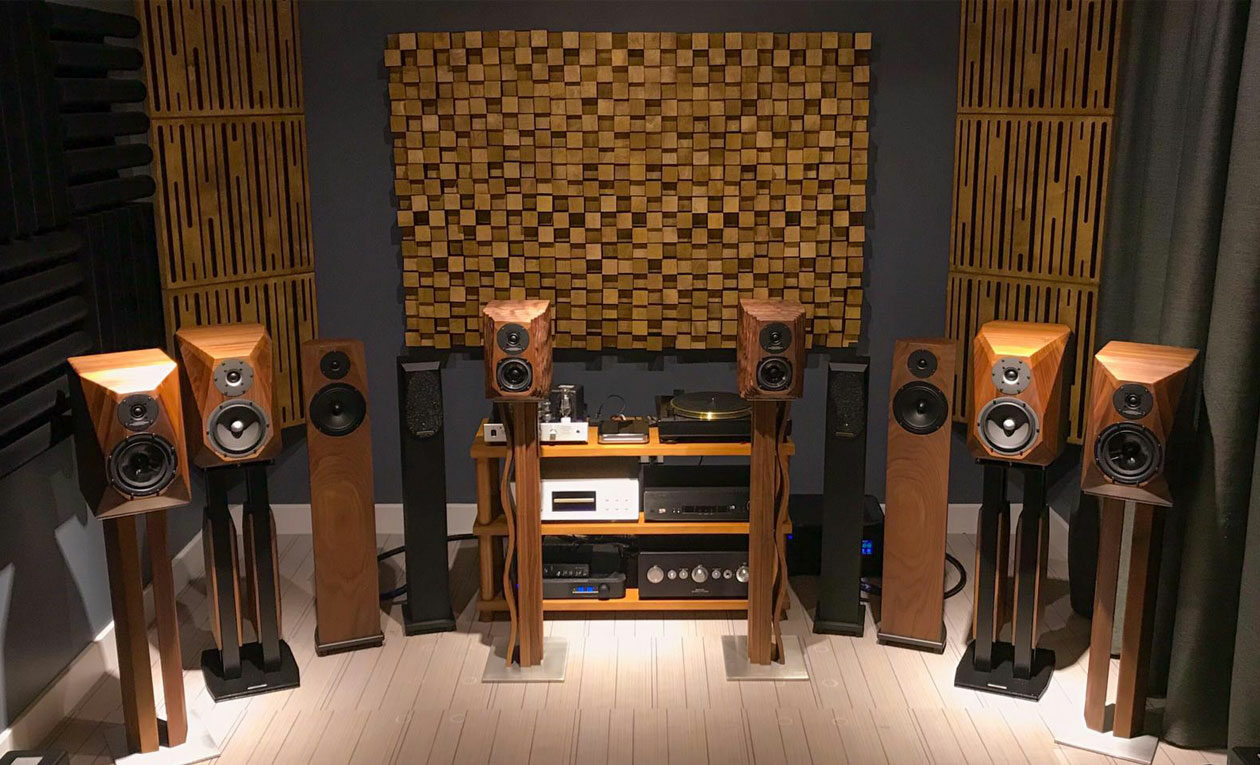What is Acoustics and Why is it Important?

Acoustics is the branch of science concerned with the propagation, production, control, and perception of sound. This field of study has applications in many areas, from architecture to music production.
Basic Concepts of Acoustics
Acoustics is based on several fundamental concepts.
- Frequency: The number of repetitions of sound waves per second, measured in Hertz (Hz).
- Amplitude: Represents the intensity or energy level of sound waves and is measured in decibels (dB).
- Echo: The reflection of sound waves off a surface, creating a delayed sound perception in the listener.
- Absorption: The process of sound waves being absorbed by a surface and converted into heat energy.
- Diffusion: The scattering of sound waves in different directions after hitting various surfaces.
Acoustics in Architecture
In architecture, acoustics is essential for controlling sound within and around buildings. A well-designed acoustic environment can create comfortable and functional living spaces while saving energy.
- Room acoustics: The study of how surfaces and materials within a room affect the propagation of sound waves.
- Insulation: Techniques and materials used to prevent the spread of sound within and outside buildings.
- Noise control: Methods applied to reduce unwanted sounds (noise) inside and outside buildings.
Acoustics in Music and Sound Production
In music and sound production, acoustics is a critical factor that affects the quality and experience of sound in recording studios and performance venues. Acoustic applications in music and sound production include:
- Studio acoustics: Acoustic design and arrangement of studios to create ideal environments for sound recording and mixing.
- Monitoring: Acoustic arrangements and equipment used by sound engineers and musicians to accurately evaluate their performances and recordings.
- Live performance acoustics: Acoustic design and techniques used to ensure proper sound propagation and optimize the listener experience in concert and performance venues.
Acoustic Materials and Technologies
Various materials and technologies are used to improve acoustic performance.
- Absorbers: Materials that absorb sound waves and convert their energy into heat. Soft foam, fabric, and mineral wool are commonly used.
- Barriers: Dense and heavy materials that block the transmission of sound waves. These insulation materials are made from construction materials like concrete and solid wood.
- Diffusers: Surfaces with geometric shapes that reflect sound waves in different directions, promoting their dispersion. Diffusers made from materials like wood, plastic, or aluminum are used to improve room acoustics.
- Acoustic suspensions: Materials like springs and rubber that isolate structural elements from one another, reducing structural noise.
- Active noise cancellation: Electronic systems that control sound waves to reduce unwanted noise. Active noise cancellation technology is widely used in headphones and the automotive industry.
The Future of Acoustics and Environmental Impacts
Acoustics play a significant role in creating sustainable and eco-friendly living spaces.
- Green buildings: Sustainable structures that place great importance on acoustic design to save energy and improve living quality.
- Urban planning: Planning processes that take into account the acoustic properties of cities to reduce noise pollution and protect public health.
- Transportation acoustics: Methods and technologies designed and implemented to reduce the noise impact of transportation systems.
- Renewable energy: Research that investigates and develops solutions for the acoustic impacts of renewable energy sources like wind turbines and ocean waves.
Why Acoustics is Important
This constantly evolving field of science, which plays a significant role in many areas of our daily lives, is critical for protecting our quality of life and the environment in fields ranging from architecture to music production, eco-friendly living spaces to transportation systems.
A well-planned, high-quality acoustic design and implementation can increase energy efficiency, reduce noise pollution, and make our living spaces more comfortable, making significant contributions to the more sustainable future we hope to achieve.
Acoustics investigates the physical properties of natural and artificial sounds. It finds application in various areas related to the production, propagation, perception, and control of sound. For example:
Hearing Health: Hearing problems such as hearing loss, tinnitus (ringing in the ears) can be treated with medical devices like hearing aids and cochlear implants. Acoustics conducts studies related to the design and effectiveness of these medical devices.
Sound Insulation and Control: Sound insulation involves materials, methods, and applications used to reduce noise in residential buildings, offices, theaters, concert halls, industrial structures, and other spaces. Sound control is used to enhance the quality of live performances, recording studios, concert halls, and other sound-related applications.
Music and Audio Engineering: Acoustics is a fundamental discipline for music and audio engineering. Topics like microphone technology, sound recording and mixing processes, mastering, live performances, music production rely on acoustics. Audio engineers use acoustic principles to improve the quality of sound mixes.
Audio Technologies: Audio technologies like smart speakers, virtual assistants, and smart home systems are based on acoustic principles. These technologies use acoustic principles to improve sound quality and perception.
For these reasons, acoustics play an important role in many areas. Being knowledgeable about the physical properties of sound helps people protect their hearing health, reduce noise pollution, enhance the quality of music, and develop audio technologies.